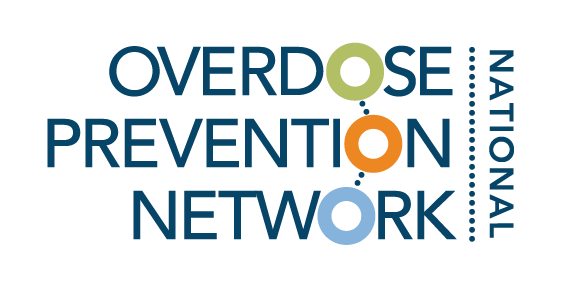
Resource Library
Toolkits, guides, and other resources vetted by experts in overdose prevention.
Filter by category and tags, or search by keyword (ex. COVID-19, harm reduction).
Pregnancy and Substance Use: A Harm Reduction Toolkit
This toolkit was created for supporting pregnant and parenting people who use drugs, their loved ones, and their service providers. This toolkit was written in collaboration with the National Hard Reduction Coalition and the Academy of Perinatal Harm Reduction.
Public Safety-Led Community-Oriented Overdose Prevention Efforts (PS-COPE) Concept Paper
This PS-COPE Concept Paper is a new approach to community-oriented overdose prevention and response in Black, Indigenous, and People of Color (BIPOC) Communities. It is a supplemental resource that describes the cross-cutting principles of trauma-informed, recovery-oriented, procedurally just and PS-COPE approaches, and how each of these frameworks brings unique value to working within BIPOC communities.
Public Safety-Led Community-Oriented Overdose Prevention Efforts (PS-COPE) Toolkit
The Public Safety-led Community-oriented Overdose Prevention Efforts (PS-COPE) Toolkit is a new approach to overdose prevention and response for Black, Indigenous and people of color (BIPOC) communities. It combines three proven models to enhance overdose prevention and response: trauma-informed care, recovery-oriented systems of care and procedural justice.
School-Based Harm Reduction with Adolescents: A Pilot Study
This journal article reviews the impact of a pilot study on the use of the Safety First real drug education with high school freshman and these findings had significant implications on reductions of overall substance use and increase in harm reduction in these freshman students.
Trauma-Informed Approaches Toolkit
This toolkit is intended to provide foundational information, language, and an introduction to tools and assessments for agencies and providers, both those who provide direct services and funders.
A Game Changer for Street Medicine: Key Takeaways from New Medi-Cal Guidelines
This issue brief lays out the major implications of this new guidance, along with key issues that remain, and is designed for clinical professionals and others who operate street medicine programs or are interested in creating new programs.
About Naloxone/Narcan + Instructions (Spanish Version)
This video is in Spanish and is an animated naloxone training and informational video that OD Free Marin created for sharing with community members to provide information on naloxone and responding to an overdose.
About Naloxone/Narcan + Instructions
This video is an animated naloxone training and informational video that OD Free Marin created for sharing with community members to provide information on naloxone and responding to an overdose.
What is fentanyl? Spanish PDF
This flyer created by Prescribe Safe Monterey County is translated into Spanish providing advice around fentanyl, its potency, and harm reduction safety tips.
Four Data Driven Strategies to Engage Youth in Overdose Prevention
What steps can communities take to engage youth in overdose prevention? The following summary provides concrete examples of data-driven strategies to address rising rates of overdose among youth. Case studies were drawn from overdose prevention coalitions participating in the California Overdose Prevention Network (COPN) Accelerator 3.0 Program. These can serve as models for other coalitions and organizations across the country.
Supporting Coalitions in Harm Reduction Services & Approaches for Youth
The National Harm Reduction Coalition (NHRC) worked with California Overdose Prevention Network (COPN) funded multi-sector coalitions throughout the state in 2022 and focused on supporting coalitions in harm reduction services and approaches for youth. This handout is of the key highlights from the COPN Accelerator 3.0 Program of coalitions working NHRC and implementing harm reduction services for youth.
COPN Q & A on the Opioid Settlements in California
The Q&A below is based on presentations during the Fall 2022 COPN Convening with Christine Minhee, J.D., Founder of OpioidSettlementTracker.com and Louise Renne, LL.B., from Renne Public Law Group. You can access the full recording, slides, and resources here.
NOPN Q & A on the National Opioid Settlements
The Q&A below is based on a presentation from September 7, 2022 by Christine Minhee, J.D., Founder of OpioidSettlementTracker.com. You can access the full recording, slides, and resources here.
Fentanyl Overdose
In this JAMA Patient Page, Fentanyl Overdose, it provides an overview on how fentanyl overdose occurs, how it is treated, and other information on fentanyl.
DHCS California's Opioid Settlements Info
This page provides information for California and the cities, counties, and other eligible subdivisions (“Participating Subdivisions") regarding the California Opioid Settlements.
Traditional Practices & Native Substance Use Healing (August 2022)
Tribal MAT ECHO training from August of 2022 that discusses the benefits of linking Native traditional practices with substance use recovery.
Expanding Access To Medications For Opioid Use Disorder Treatment For Justice-Involved Populations Under Community Supervision: Best Practices From Four States
In July 2021, four states discovered a variety of policy and programmatic approaches to improve the medications for opioid use disorder (MOUD) landscape. The four states were able to pilot interagency collaborations, launch training and education curricula and explore innovative solutions around screening, treatments and case management.
Guide to Harm Reduction in the Emergency Department
While many medical professionals promote an abstinence-based approach to discussing drug use, offering tools and education around safer drug use supports patient health if they continue to use drugs. Harm reduction is the moral foundation and root practice of offering these tools and services. View this guide from the CA ED Bridge Program on how to establish a harm reduction program in your hospital and easily access related resources.
Drug Overdose Response Webpage
The California Department of Public Health Overdose Prevention Initiative (CDPH OPI) shares recommendations and resources to statewide partners in response to increases in drug overdoses statewide. Each recommendation lists resources by partner type (public safety, public health departments, community-based organizations, health care providers and settings, harm reduction organizations, medical examiners and coroners, and public health and forensic laboratories). Identify your partner type and review the resources for local overdose prevention and response implementation. The CDPH OPI team will continue to update this webpage with new information and resources as needed.
NEXTDistro
NEXTDistro is an online and mail-based harm reduction service designed to reduce opioid overdose death, prevent injection-related disease transmission, and improve the lives of people who use drugs.










